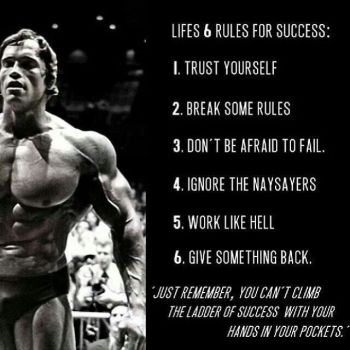Your Fraser Valley Real Estate Market Update
  

Demand for Fraser Valley real estate remained robust in September. While overall sales decreased compared to August, total sales reached the second-highest levels for the month of September in the 100-year history of the Board.
Here is the summary of the market for September, 2021
Total Sales Processed - 1,866 (Decrease of 10.6% compared to August)
Total New Listings - 2,342
Total Active Listings - 3,812
For the Fraser Valley region, the average number of days to sell an:
Apartment (Condos) -26 Days
Townhomes - 19 Days
Single Family Detached - 26 Days
Of the total transactions Fraser Valley Real Estate Board processed:
443 were Townhouses
561 were Apartments (Condos)
686 were Single Family Detached
HPI Benchmark Price Activity
Apartments/Condos
Benchmark Price - $504,500
Price increased 15.5% compared to September 2020
Price increased 1.2% compared to August 2021
Townhomes
Benchmark Price - $707,300
Price increased 24.7% compared to September 2020
Price increased 1.4% compared to August 2021
Single Family Detached
Benchmark Price - $1,362,220
Price increased 31.9% compared to September 2020
Price increased 1.9% compared to August 2021
For the most updated market information on what is happening in your neighborhood, give me a call at 604 308 6404 or e mail at RealtorNischal@gmail.com.
The support of a real estate expert goes a long way when navigating a busy market in the Fraser Valley..
Reminder: As you know that I am in real estate investment and sales and my passion is to bring buyers/sellers together. Who have you talked to in past couple days that might be thinking about buying/selling in British Columbia or anywhere in Canada (I am blessed to be a part of a huge network that I meet/talk-to on regular basis which is the backbone of my business that my clients benefit.
Also, we offer a $500.00 referral fee to anyone that leads to successful completion of a sale.
4 Essential Real Estate Lessons from Arnold Schwarzenegger
  

Not many of you know that Arnold first became financially stable—and eventually independent—not from the movie business but through investing in real estate. He had a vision early on of what the result would look like, and he was focused and driven to that end.
So what are the lessons gleaned from Arnold’s experience, and how do you become a formidable legend like him in real estate?
Refine your craft
Arnold differentiated himself as a legend in bodybuilding not only by doing hard work and lifting heavy things. He also constantly tested new techniques and refined his craft. He found it was the finer techniques and individual methods that worked best and really made the difference.
Get your mind right
He also had the right mindset. That included a big vision of developing mental toughness. The real estate industry isn’t easy. Investors have to have that vision—or at least something to keep them self-motivated when it gets tough. Arnold had the vision of the perfect body, of titles and medals, and of a big empire built on real estate. Everyone has to have something that drives them through those tougher days.
Become known
Of course, Arnold also clearly realized that just being in shape was not enough to hit his goals. He saw the importance of being in the spotlight and controlling the media too. That meant he had to take action and get out there and put himself in the game—and competitions. He competed, ran political campaigns, became the editor of several magazines, and even starred in reality TV shows.
Along the way, he has always been incredibly generous about sharing the results of his errors and successes with others.
Be adaptable
Finally, and perhaps most importantly, he has successfully embraced change. He had different training tactics for on and off seasons. And he has progressed through various seasons of his life and his career. He is still reinventing himself today. Don’t be afraid to evolve, grow, and diversify with time.
Real Estate Investor Psychology
  

If you study the most successful real estate investors of the day, you might be struck by how wealthy they are. However, you must consider how they got to where they are. Because in most cases, they weren’t born into wealth. Their success is the direct result of smart decision-making and the proper mindset.
Here are some practical yet important psychology tips and tricks that successful real estate investors use (and you can, too) to become successful.
1. Learn to Accept Losses
Are you familiar with the term “loss aversion?”
In the simplest terms, it’s a behavioral finance concept used to describe a person’s tendency to prefer avoiding losses more than acquiring gains. In other words, losing something you already have hurts more than the positive feelings of gaining something you don’t have.
Losses are never good, but you can’t let them rule your real estate investing decisions. If you’re constantly worried about the possibility of losing—or if you let a past investment loss cloud your future decision making—you’re never going to be successful.
2. Avoid the Gambler’s Fallacy
The gambler’s fallacy is another interesting concept. It’s the belief that if an event has already happened, it’s less likely to happen again after the event has already occurred (or vice-versa).
In real estate investing, it’s easy to assume that because you failed on a previous investment, the odds are bound to be in your favor this time (or vice-versa). But by taking this approach, you could end up throwing good money at a bad deal.
The best way to avoid the gambler’s fallacy is to know what your goals are and use a sound set of principles to guide your decision-making. Keep a long-term mindset and trust that your commitment will be rewarded.
3. Never Follow the Crowd
It’s easy to get so caught up in following what other investors are doing that you start trying to replicate everything they do. And while there’s something to be said for using proven principles, be wary of making assumptions based on someone else’s success in a different market.
You have to analyze your own strengths and come face-to-face with your personal weaknesses. If you follow the crowd, you’ll make decisions that are smart for someone else but unwise for you. After all, if we all made the same decisions, we’d all be sharing the same marketplace.
Adding It All Up
Real estate isn’t some formulaic endeavor that’s predicated on having X dollars in order to get Y return. Unfortunately, it’s not as simple as feeding dollars into a machine and waiting for a bigger return.
There are so many mental and emotional wheels turning behind the scenes. And if you want to be successful as an investor, you must learn how to shape your psychology so that it’s conducive to sound decision making, steadiness, and a long-term commitment to growth. If you do those things, results will eventually follow.
|